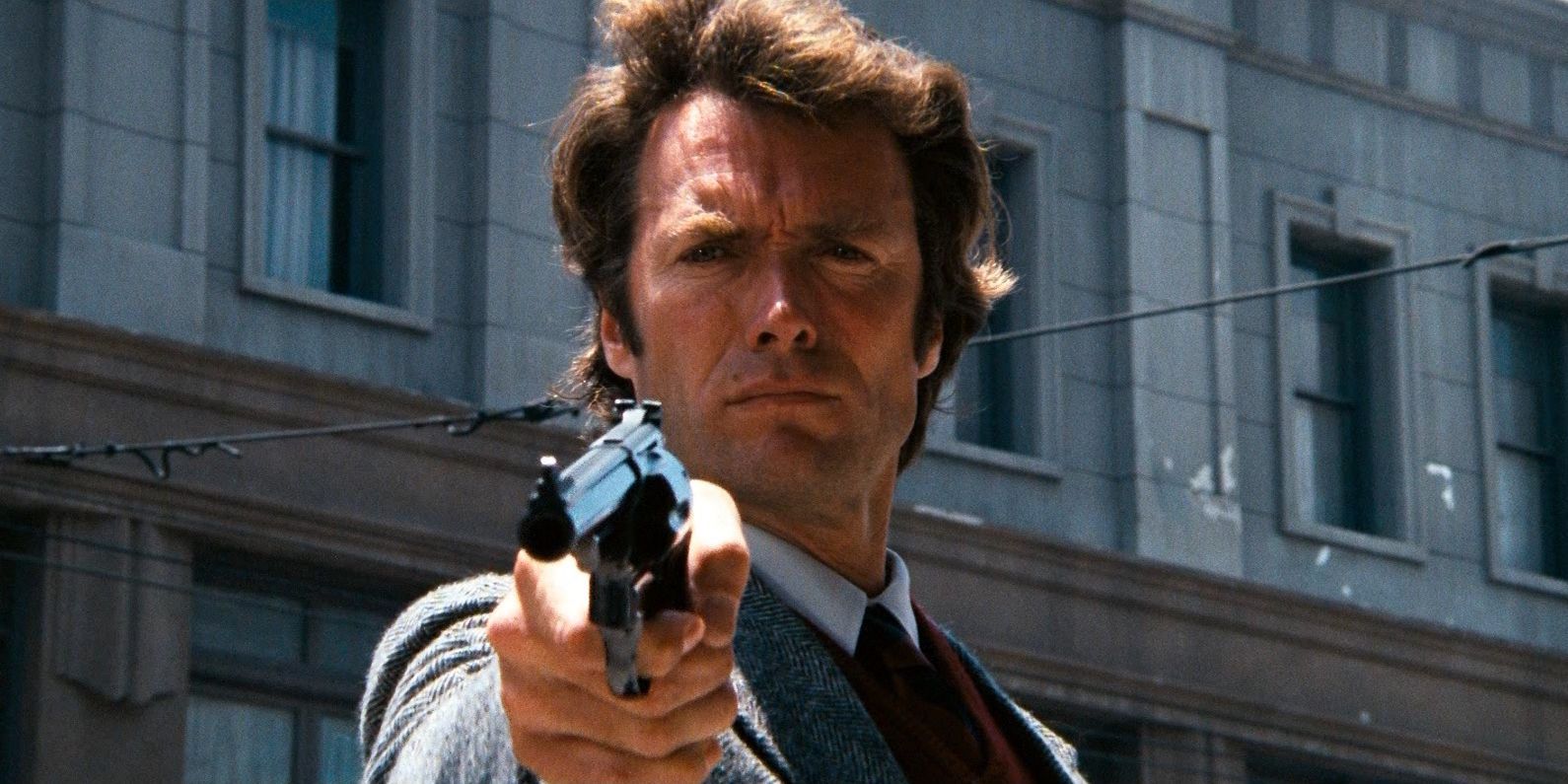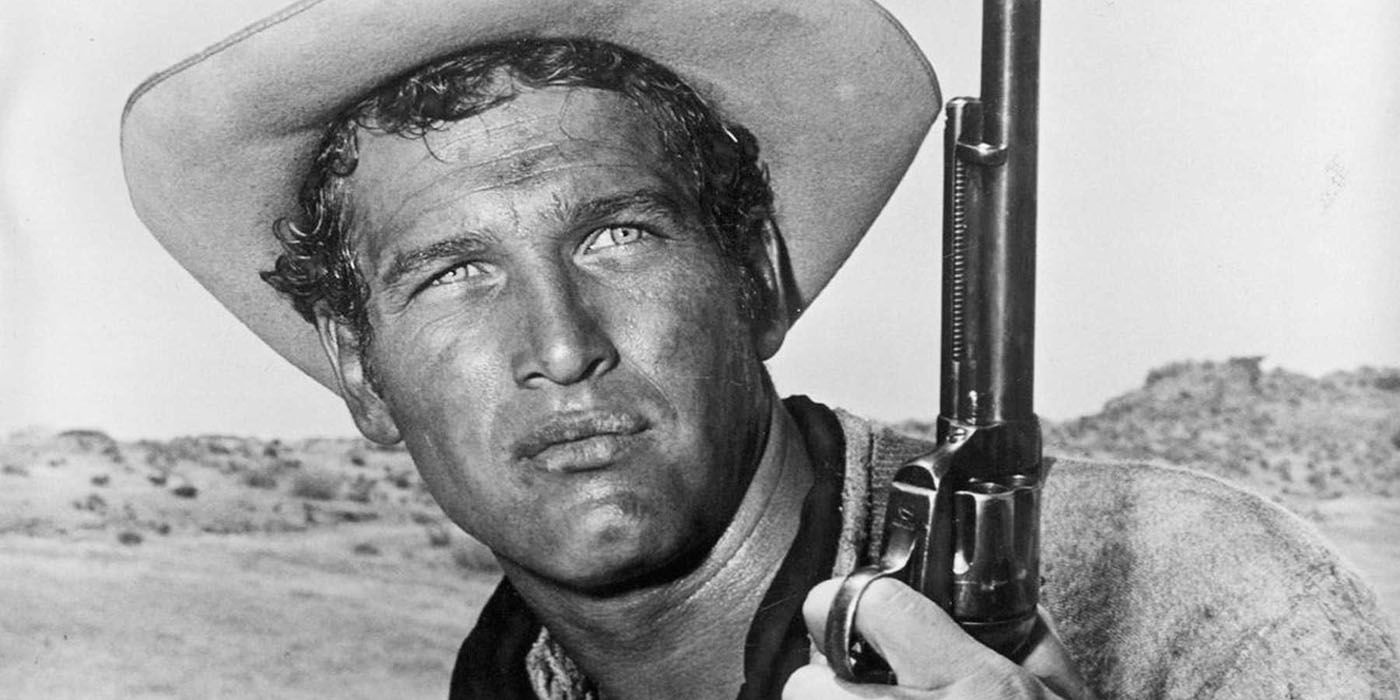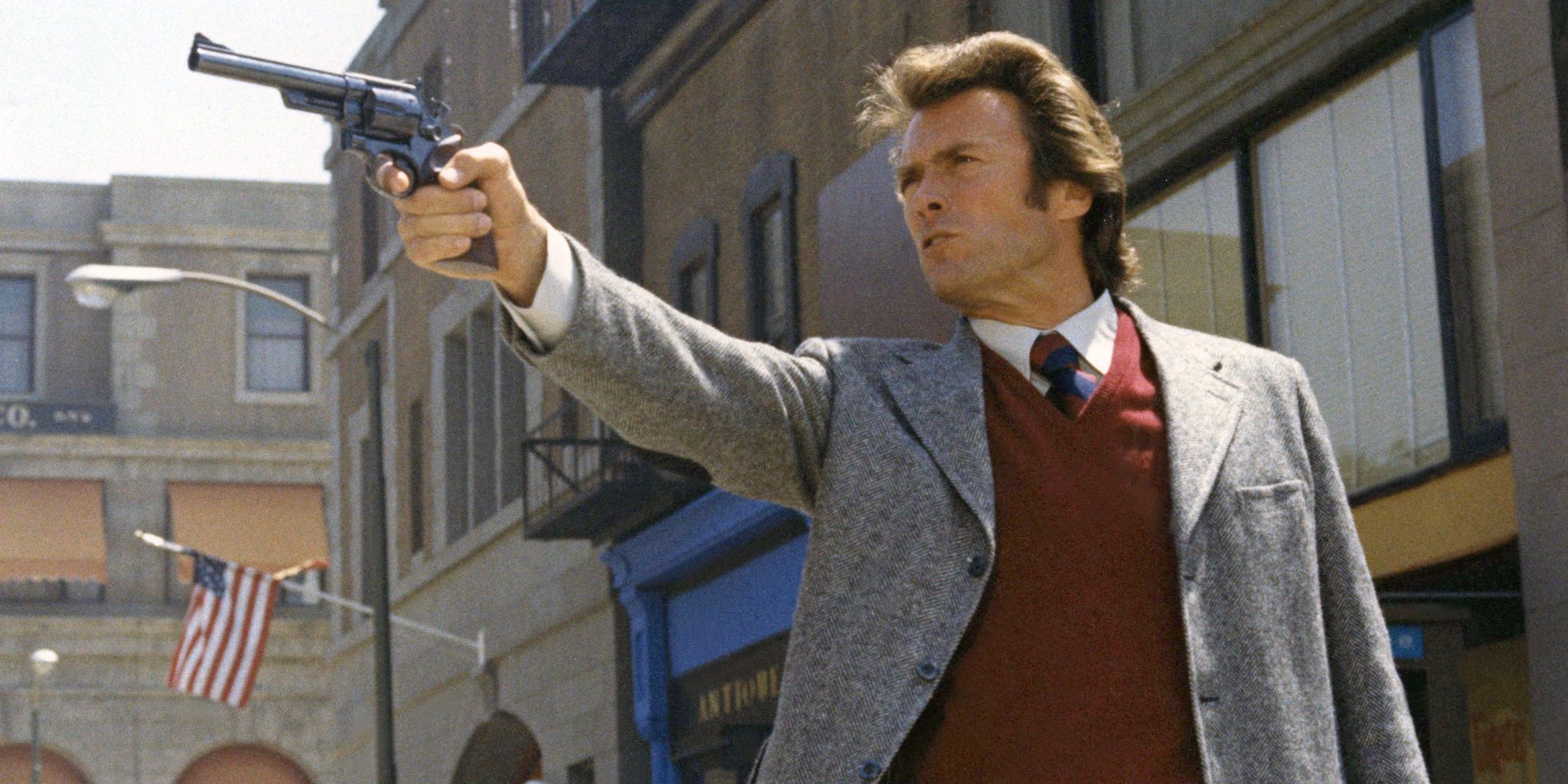Clint Eastwood
The Bridges of Madison County: Clint Eastwood and Meryl Streep creates an unforgettable portrait of Romance and Renunciation
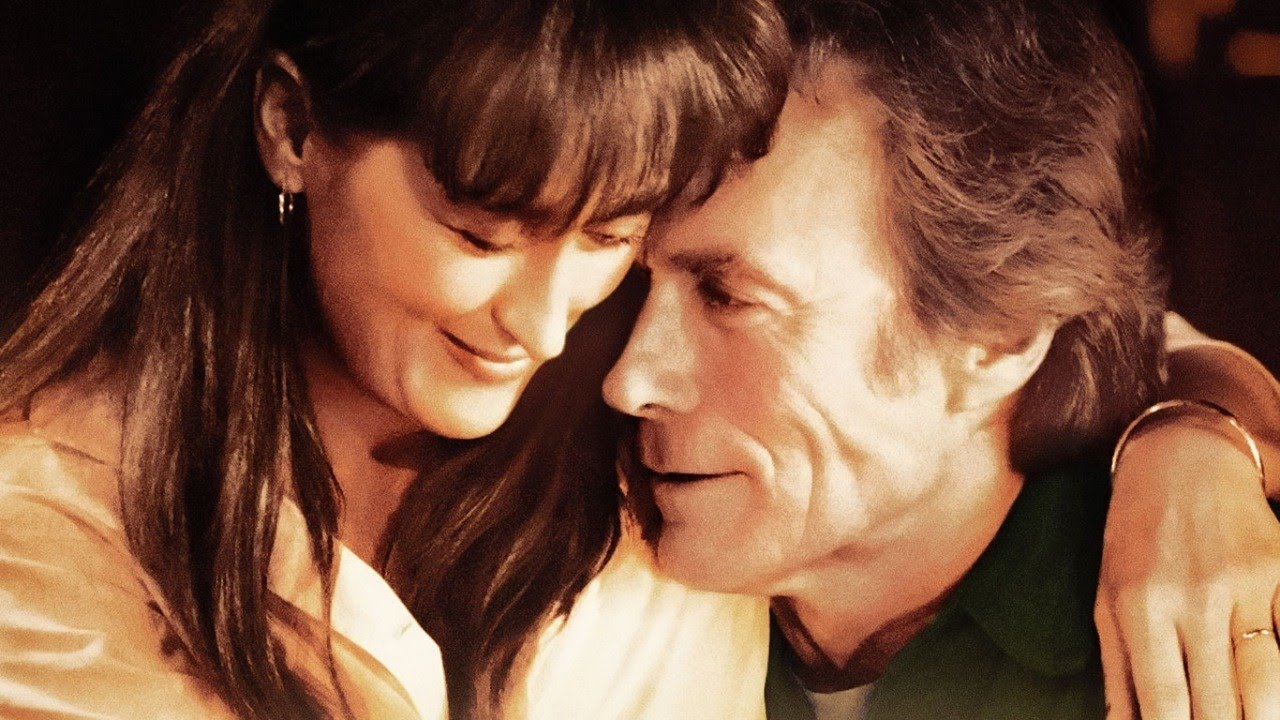
Clint Eastwood and Meryl Streep; two of the most durable, popular and honored Star\actors in movie history. Between them, they have seven Oscar wins and more than thirty Oscar nominations.Clint Eastwood turned 90 on May 31 and Meryl Streep turns 71 on June 22, so it seems a good time to revisit their romantic classic The Bridges of Madison County; the only film they worked together that’s now in its twenty fifth year. Clint was 65 and Meryl 46 , when they made the movie. That makes it a very unique romantic film, because usually people don’t make love stories about such an old couple . Either the man or woman or both would be much Younger. Both Clint and Meryl play characters that are synthesis of characters that they have played before and at the same time that possess additional dimensions to them.Robert Kincaid, like most of Clint’s western heroes, is a loner; Perhaps the last cowboy, a traveler and drifter who rides into the town of Iowa. But since the story is set in 1965, he is riding a pickup truck instead of a horse. He is also a sharp shooter, except the shooting is done with a Nikon camera; He is a photographer for National Geographic. There is no violence, except for the emotional ones; no guns, no fistfights, no car chases. Contrary to usual Eastwood characters, Robert is quite a romantic; who quotes poetry, philosophy and pick flowers for the lady. This romantic, vulnerable aspect is something that Clint has not played much before and he adapts himself superbly in this role. He has always been a minimalist and it’s great to see him play this mawkish, melodramatic character with great subtlety and dignity. The film is adapted from Robert James Waller’s syrupy, soap operatic bestseller of the same name which sold about ten million copies. Clint’s minimalist tendencies as a director turns out to be perfect for toning down the romantic excesses of the novel. In the hands of another director, this would have been an unbearably schmaltzy film. But Clint finds a strong dramatic and human core, with the help of writer Richard Lagravenese- who would later do the same for Robert Redford’s The Horse whisperer. But the real star of the show, and without whom it would have been impossible to imagine the film , at least in the form as it exits today, is the great Meryl Streep. She infuses her unparalleled skills as a dramatic actress as well as her incandescent star charisma in creating the character of Francesca Johnson, that’s at once fully formed and realistic and also highly romantic and fantastical. Who, one moment, is this drab middle aged, middle class southern house wife and the next is a passionate, glamorous, fantasy woman for the macho , roaming male played by Clint.

It is usually said that the best movies are made from mediocre novels, while great novels result in mediocre movies. Look no further than this movie for confirmation. The film is a great improvement on the novel. The lead characters in the novel are bland romantic stereotypes . A bored, ѕехսаււy frustrated housewife and the hero who is every Woman’s perfect dream man. But director Eastwood and writer Legravenese deepen the characters in the screenplay. The character of Robert Kincaid is portrayed as a man with flaws, Someone who is emotionally detached and creatively unfocused and hence has not fully achieved his full artistic potential. And Francesca becomes the vehicle through which he achieves it. Francesca on the other hand is a very complex woman, who hides a more passionate,emotionally volatile creature inside her prim and proper housewife character.The film is told from Francesca’s point of view. And Clint, the director and Superstar, very wisely and generously, steps aside and hands over the center stage to Meryl. The basic character of Francesca is not alien to Meryl. It’s similar to her first academy award winning performance in Kramer Vs Kramer; the frustrated wife caught up in an unhappy marriage, who chooses to leave her husband and family, except here she choose not to . It’s also similar to the title character from Sophie’s Choice – The war bride with a foreign accent who comes over to America from an European country. There are also elements of Karen Blixen she played in Out of Africa– a woman in an alien country getting into an extra marital affair with a charming loner. But this character has a raw, earthy ѕехսаւıty, a voluptuousness that hidden under the pretty housewife exterior that she has not played before and her character graph in the film is about this women slowly revealing her true self in the company of this exotic stranger. Meryl has the most difficult role in the film and perhaps the most difficult role of her career because the character is more of a rough sketch in the screenplay, not like the fully developed characters she played in Sophie’s choice or Silkwood. And it is in this role that Meryl’s true genius as a performer comes through. A competent enough actor can bring a fully developed character alive on screen. But it takes a very very special one, to take a roughly sketched stereotype and turn it into a very complex, very human character on screen. Its a performance that start out with subtle gesture and movements that slowly builds and builds as her performance become bigger and bigger as the film proceeds. She is ably supported by Eastwood-the director and Co actor Clint, being an extremely charismatic star, can effortlessly ooze charm and grace. And that’s what he is called upon to do for most of the film and mainly to be the subdued foil to Meryl .
Clint shot the film in continuity so that the performances and their relationship between characters could be developed organically. The film , like many a Clint Eastwood directed movie, does not have many big moments or loud confrontations. It has an elegiac tone with scenes taking their time to play out. Its composed of very subtle, quite and delicate moments. Francesca Johnson is a middle aged Italian woman who finds herself with a husband and teenage children, living on a farm in the middle of a flat Iowa horizon.Francesca’s husband and children have left home for several days to go to the Illinois State Fair.That’s when Robert Kincaid enters her life. He was on his way to photograph the Roseman Bridge, but got lost and lands at Francesca’s doorstep. Francesca impulsively agrees to take him to the bridge. On the way they make small talk and Robert’s hands briefly brush against Francesca’s bare legs when he is searching for a cigarette.For a moment, there is a subtle shift in her emotional state and we see later that she really cherished that moment. Once on the bridge Robert goes about setting up his shots, while Francesca walks around keenly observing him. Robert surprises her with a bunch of flowers he had picked for her , she say thanks , but in the same breath and with a straight face she says that they are poisonous. Robert drops the flowers to the ground as she breaks out into a laugh. She has lied infact and the flowers are perfectly safe. Its the first time we see a mischievous, volatile side to Francesca. She herself don’t know why she lied. Nothing up to that point had given an inkling to this side of her. May be , in the company of this stranger who claims to have visited her native place of Bari in Italy, she is going back in time to the girl she was before her marriage , someone whom she herself has forgotten. On the return from their little excursion to the bridge, Francesca invites Robert to have some Ice tea and he accepts and then comes an invitation to stay for supper and he accepts that too. And through the course of these events, and to her own disbelief,Francesca is becoming more and more attracted to Robert .
The scene were they are preparing supper in the kitchen is a pivotal moment in the film. It is constructed as a subtle mating ritual between the two as they stand close together . He is making salad at her insistence, while she is cooking dinner. Earlier in the film, we have seen the kitchen as a place of family get together, when Francesca was having dinner with her husband and kids. We had also seen her place in the family, that she is more of an invisible member , whom the other members hardly notice. But now she is the star , being the sole object of this handsome stranger’s undivided attentions, and as we will see later on, the kitchen will be the main location where their love story will develop .Post supper, they start drinking and slowly Francesca becomes freer and freer with her questions and answers. Her regrets with her current existence comes to fore. She describes her husband as ‘clean’ and very loving , but the life she has now is not what she expected when she got married. Its one of the most brilliant instances of acting from Meryl, as she is juggling a lot of stuff as an actress in the scene; she is trying to hide her true feelings for the stranger; trying to convince herself that everything is alright with her life and at the same time, cant help expressing her regrets. I have always felt Meryl is at her best, when she is playing scenes where she has to hide the character’s true feelings and this is one of them. The conversation ends on a rather acrimonious note when Robert fires a rather indiscreet question as to whether Francesca wants to leave her husband. Francesca snaps , as if Robert has just read her most intimate thoughts. Robert apologizes and walks out of the house. Eastwood frames this moment. as the door shuts on Francesca, as if she is being imprisoned back into her domesticity while Robert resumes his traveler’s life.
But then Francesca makes the move for reconciliation and Robert accepts and they decide to meet again. She becomes as giddy as a teenager going on a first date, jumping up in joy, going out for shopping and buying a new dress.But then Robert becomes familiar with the delicate moral structure of a small town like Iowa, when he has an encounter with the ‘Redfield woman‘, the woman who is ostracized by the society for having an extra marital affair. He has second thoughts about meeting Francesca again, but she is determined to press on. So once again he comes home for dinner and she comes down the stairs in her new dress looking drop ԁеаԁ gorgeous and he is totally transfixed. This is the moment when their romance begins, the first touch, the first dance, the first kiss.When they first touch, Francesca – on the phone with a friend, who is talking to her about spotting Robert in the town – merely reaches out to caress Robert’s shoulder as he sits at the table ;she adjusts his collar, brushes his neck with her finger, and then leaves her hand resting on his shoulder and he gently takes her hand in his. The scene is the epitome of subtlety and silence, Yet the moment is electrifying. Later, he leads her in a slow dance around the candle-lit table, and once again, the kitchen that once was the place of domestic routine is now transformed into a lovers paradise.He says he will stop it right now if she asks him to but she says nobody is asking you. they kiss , they make love and their epic love story, that’s going to last just four days, begins. But once the love affair starts , Francesca begins to be plagued by doubts, guilt, confusion and insecurity as she tries harder and harder to understand and accept the new man in her life, who doesn’t seem to need anybody or anything in particular in his life. They have a lover’s quarrel, in which she accuses him of being a phony and a hypocrite.But is immediately remorseful, as she grapples with her dilemma; of either staying on the farm as a loving wife and mother or go away with Robert ,who she knows by then is her true soulmate . He wants her to leave with him – This kind of certainty comes but once in a lifetime. , he says, while she cannot bear the thought of subjecting her family to shame.They part ,with Robert insisting that its not final.
Now the trademark of all great love stories – whether its Brief Encounter, Casablanca, The way we where etc etc. – is that the lead pair part ways at the end of the film. Its the unrequited nature of their love that makes these movie memorable, which comes about as a result of one or both of the lovers deciding to renounce their love. Bogart’s renunciation at the end, enabling Bergman to leave Casablanca with her husband makes the film what it is. And similarly here,The emotional peak of the movie is the renunciation, when Francesca does not open the door of her husband’s truck and run to Robert. Francesca is out buying groceries with her husband Richard; this is after she and Robert had parted and her family has come back from the fair. She waits in the car while her husband shops in the store. Robert, drenched in rain, slowly walks over to Francesca, who can see him from the car window. He stands there for just a few seconds , but what seems to be an eternity. This moment marks one of the most brutally honest displays of emotions in Clint Eastwood’s career as an actor. Words cannot do justice to the amount of love, pain and longing he conveys in that moment when he looks at her, with the rain hiding his tears.Then suddenly he turns back, as Richard returns from the store, gets into the car, and drives away. They approach a red light, where Robert’s car is stopped in front of them. Francesca can see him. The light turns green. Robert stalls. Francesca puts her hand on the door handle and slowly begins to open the door, and just as she does this, Robert drives away and Francesca breaks down into tears. Her husband, like always unable to understand her , is perplexed by her behavior. She just asks him for some time to regain herself as they drive back to their home. This is the moment, the big climax that the film has been slowly building towards. The film was never about their love having a happy ending, which they knew was impossible from the beginning, but its more about the idea, the promise of experiencing that perfect love and finding that perfect soulmate which would continue to give them hope and strength as they navigate their lives in the future. If Francesca was to runaway with Robert, then their love wouldn’t remain perfect ; as she tells him in one of those emotionally charged moments, that if i walk out with you now , i will start hating myself for it. The fact that their relationship lasts only four days and they know that it would only last four days , makes it so much more beautiful and fulfilling for them. Many years later, Francesca receives a package from Robert where we see that their love has helped Robert in finding some meaning in life and his true calling as an artist.
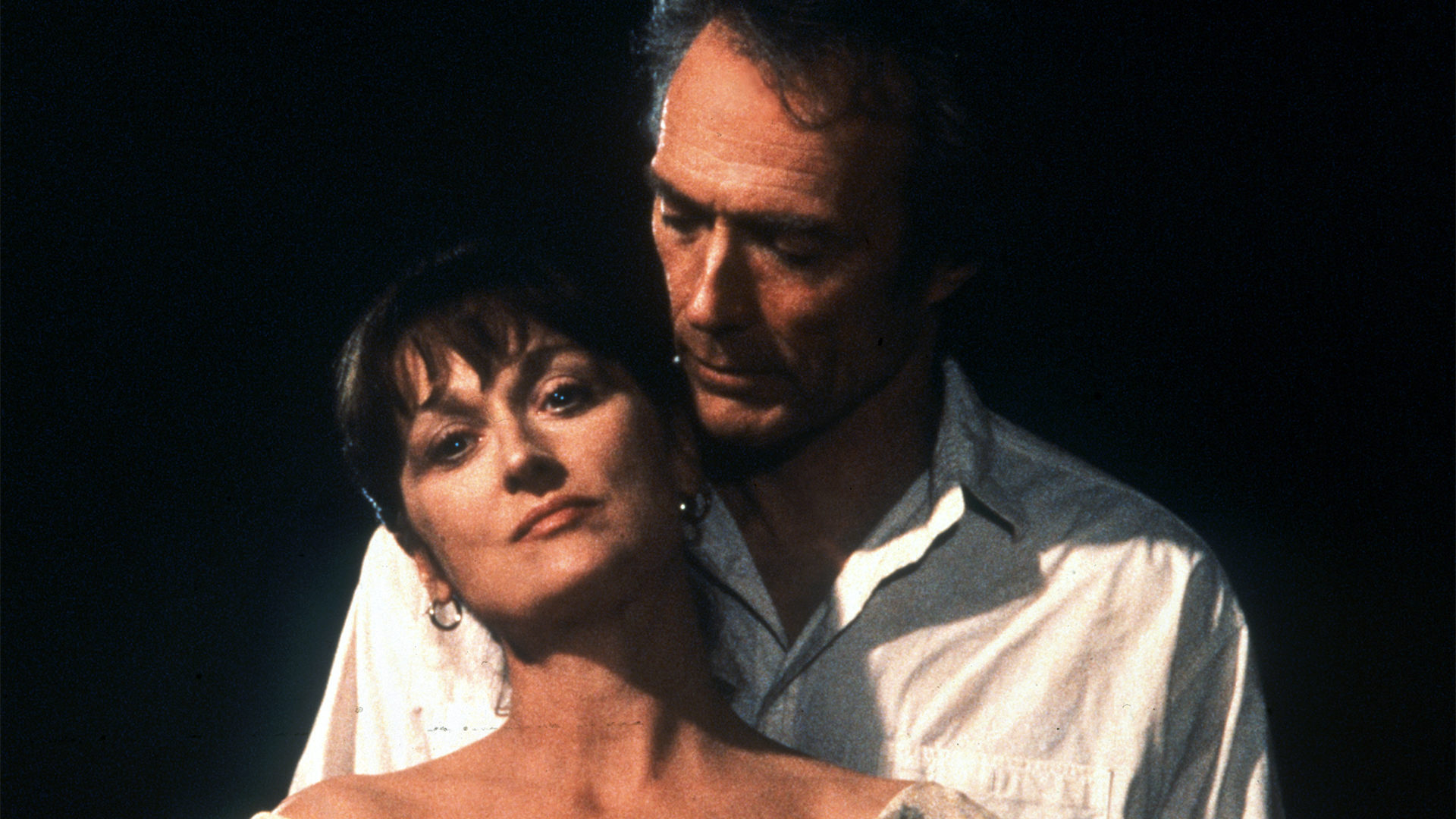
The weakest aspect of the film is the framing device used by Eastwood, of telling the story through Francesca’s children . The movie opens with Francesca’s grown children returning to the family farm after she ԁıеѕ, and discovering three journals written by Francesca to her kids, explaining the four-day affair she had with the photographer back in the 1960s. It is a necessary device for setting up the ‘once upon a time’ fairy tale nature of the romantic story as well as the feeling of loss inherent in the story. But then it goes on to explore the deep consequences the mother’s story has on the lives of her children : Michael and Carolyn, who are both experiencing marital problems. Their mother’s story helps them to find a sense of direction in their lives. This is just too much melodrama in such a delicate film . Secondly the actors in this story are no match for the screen giants carrying the main love story and every time the story cuts back to present , the film becomes inert and bland. But still, the real love story is so powerful and moving that it manages to overcome this handicap.
Meryl Streep was nominated for an Oscar for best actress for her performance in the film, but she did not win. Its the same old story with Oscars where truly great performances never win awards. Its looks rather ridiculous that she didn’t win for this one and won an Oscar for her lackluster performance in Iron Lady. I am not a fan of Meryl’s highly regarded performances like Sophie’s choice or Silkwood. I admire them and can appreciate the work she puts in. But her technique in those performances are so overpowering and obvious that one never fully connects with those characters. My favorites has always been her more subtle, less showy ones like The French lieutenant’s women, Plenty; and absolutely love her in her comedies like She Devil , Devil wears Prada , Its complicated ,etc….She does not get enough credit for them. And above all i love her in this film; Francesca and Sara from The French lieutenant’s women are my two all time favorite Meryl performances. For Clint Eastwood, this film was a continuation of his hot streak, post his career reinvention with Unforgiven. The film was both critically and commercially successful, making close to 200 million dollars at the box office. The film also showcased his extraordinary growth as an actor and director.Pulling off this very delicate, romantic film from a very mawkish literary source would forever remain a crowning achievement in his career, which is more often marked by very dark, masculine pictures. It’s also a great gift he gave to an extraordinary actress like Meryl Streep; who was at the time facing a crisis in her career as all actresses over forty do in Hollywood, and thereby to her die hard admirers, by facilitating one of her greatest screen performances ever. I regret the fact that Clint and Meryl never worked together again, and that Clint never made another romantic drama like this, even though he gave an even more vulnerable (and fantastic) performance in his own Million Dollar Baby(2004), for which he should have won a best actor Oscar. Then again, perhaps one The Bridges of Madison County is enough to cherish the union of these two great talents for a lifetime.
You may like
Clint Eastwood
Mystic River: Why Clint Eastwood’s Best Movie Still Holds Up Today

A filmmaker of Clint Eastwood‘s caliber is going to have a filmography full of gems. Primarily known for his work in Westerns, biopics, and military dramas, every so often, Eastwood steps outside his comfort zone and delivers in a genre that would seem completely unexpected on paper. That happened in 2003 with Mystic River, a neo-noir murder mystery drama that seems a bit forgotten or overlooked, even though it was a financial success and earned six Academy Award nominations. It represents Eastwood at his very best, breathing vivid life into complex characters as he examines a plethora of themes that range from loyalty, friendship, revenge, and, ultimately, forgiveness.

Mystic River is based on the 2001 novel of the same name by Dennis Lehane, and it follows the lives of three childhood friends, Jimmy Markum (Sean Penn), Sean Devine (Kevin Bacon), and Dave Boyle (Tim Robbins), living in Charlestown, Boston in 1975. Dave is kidnapped by two men claiming to be police officers, and he’s sexually abused by them over a four-day period until he escapes. The traumatic event shapes the three friends, and they ultimately lead very different lives twenty-five years later.
Jimmy is an ex-con that now owns a convenience store in the neighborhood, Sean works for the Massachusetts State Police as a detective, and Dave is your everyday blue-collar worker that still lives with the trauma of being abducted and raped. Their lives are forced together once again through tragedy when Jimmy’s daughter Katie (Emmy Rossum) is found murdered, and friendship is tested when all signs point to Dave being the murderer.
Mystic River Is a Departure From Clint Eastwood’s Other Work
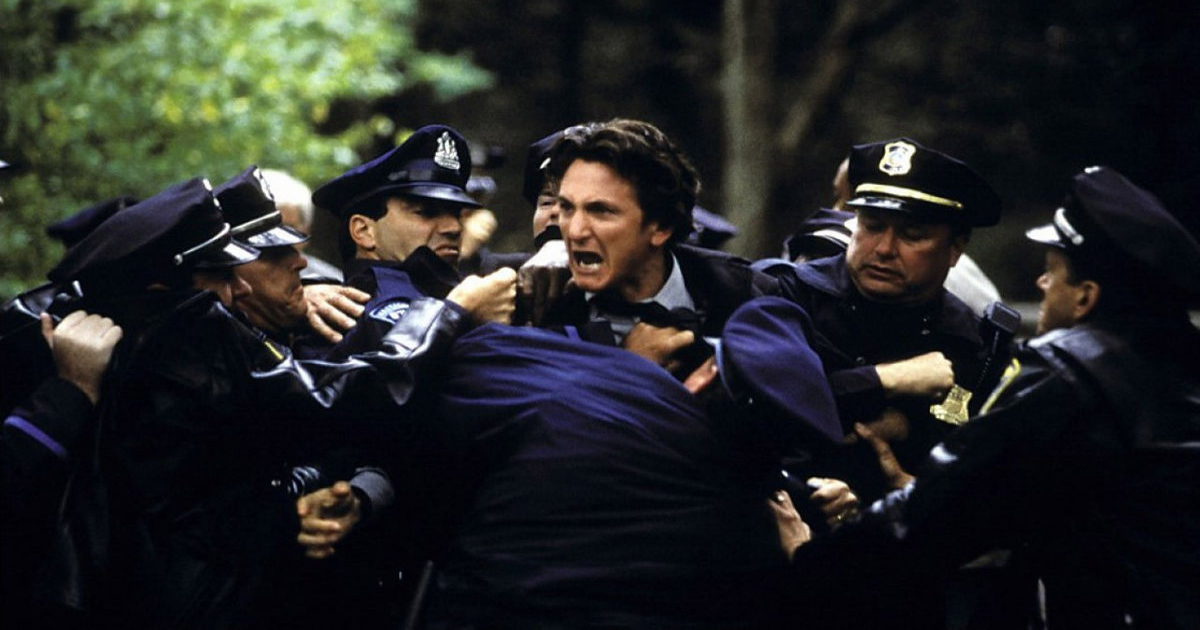
Eastwood tackles the material in Mystic River with a sure and confident hand. It also represents a unique departure from some of his other films. Much of the action takes place under the cover of darkness, and Eastwood is able to find beauty in that darkness. The filmmaker focuses on a character’s eyes or the gleam of a weapon, for instance, as darkness permeates most of the scene.
For the scenes that take place during the day, the filmmaker opts for tight close-ups that linger over the emotions of his impressive cast. There is something uncomfortably intimate about Mystic River, and that has much to do with the subject matter. None of this story is particularly easy to digest, and Eastwood adds to that discomfort with his choices to frame scenes in such a way that’s almost intrusive. The audience feels a growing sense of dread and tension as more of the story unfolds.
Using Lehane’s novel and Brian Helgeland’s screenplay as a blueprint, Eastwood profoundly explores generational trauma and how the sins of the past can leave a permanent mark on our present. Even though the abuse only happened to Dave, the effects of the event leave a mark on all three friends, with Dave being the primary victim and the others feeling a sense of survivor’s guilt for not being subjected to it themselves.
The ordeal forever changes their union because they’re never quite able to look at each other the same way again, as each friend deals with the trauma differently. Jimmy is stunned by the act of abuse but can’t give Dave the support he needs, which then bleeds into their present when Jimmy begins to suspect that Dave had something to do with his daughter’s murder. He doesn’t want to consider that his friend would do something like this because of the trauma he endured as a child, but as evidence mounts against him, Jimmy has to decide if friendship and loyalty overshadow his need for vigilante justice. The story is rich with so many complexities that make it some of Eastwood’s most compelling work as a filmmaker.
Eastwood also takes his time with the story and lets it unfold as it should. Mystic River is very nuanced, and he knows he’s dealing with heartbreaking subject matter that requires patience and respect. The story is grounded in so much reality that Eastwood seems keenly aware that a viewer might be an actual victim of this kind of abuse themselves, so he delicately approaches the topic and gives it the emotional weight it deserves.
He also shows the uncomfortable side of abuse where the victim, unfortunately, can be shamed because of the event. Dave becomes an outsider later in his life, even with his close friends, something that sadly comes along with this kind of trauma. Eastwood approaches all of this responsibly and provides a very balanced outlook to all the events transpiring on screen.
Mystic River has become known for its powerhouse performances, and Eastwood pulls the very best from his ensemble cast. While the scenes with the young actors are brief in the beginning, they set the tone of who these people will be twenty-five years later. Dave becomes the outcast because of the event; Jimmy lacks empathy and doesn’t trust authority, while Sean becomes the grounded one of the bunch and a police officer in an attempt to prevent a tragedy like this from ever happening again.
Clint Eastwood Pulls Powerhouse Performances From His Cast
Tim Robbins, Sean Penn, and Kevin Bacon do a great job conveying the unspoken tension between all three of these characters. There is a sense of loyalty, but so much has taken place over the years that it has forced them all to lead very different lives. As a group, they are uniformly excellent. You feel the history between the characters and the bonds that were broken, only to be reopened by a new traumatic event.
On their own, Penn gives the performance of a lifetime as Jimmy, and it’s not a shock that this turn finally earned him his first Academy Award for Best Actor. Penn is a dominant presence in all of his scenes, and there is a sense of uncertainty whenever he’s around because you don’t know exactly what move he will make.
That’s not to say he doesn’t display layers. All of that bravado is broken once he finds out his daughter is murdered. It’s hard to pinpoint a director’s best scene on film, but what Eastwood pulls out of Penn during the “Is that my daughter?” sequence represents some of his very best work as a filmmaker.
Robbins also received an Academy Award for Best Supporting Actor for his work here, representing a much-deserved win. As Dave, Robbins is the tragic and emotional heart of the story. The viewer feels instant empathy for Dave due to what he went through as a child, but you’re also left questioning everything when it seems like Dave could be the one who murdered Katie.
Robbins keeps you on your toes throughout, making you question his innocence while also seeing the tenderness in him as he interacts with his own child, who is just about the age he was when he was abused. As for Bacon, of the three male leads, he gives the most subdued performance, but it suits the character. He’s trying to make everything right and keep it all together. It’s a subtle performance that carries its own emotional weight.
Eastwood also makes the supporting roles worthy of attention. Marcia Gay Harding, as Dave’s wife Celeste, puts in powerful work here that earned her a Best Supporting Actress Oscar nomination, while Laura Linney more than holds her own with Penn as his second wife, Annabeth. In addition, Laurence Fishburne also fills in as Sgt. Whitey Powers in another excellent part.
Mystic River is a haunting and poetic motion picture that showcases a director laying it all out on the table. Eastwood gives the audience everything he has as a director and pours it out across the screen in a film that is just as powerful twenty years after its initial release.
Clint Eastwood
Clint Eastwood’s Most Iconic Non-Western Role Was Only Possible Because Of This Actor

SUMMARY
Clint Eastwood’s role in Dirty Harry is considered one of his most iconic, and the film is a classic in the crime genre.
Paul Newman initially turned down the role of Harry Callahan in Dirty Harry but recommended Clint Eastwood for the part.
Newman declined the role due to his liberal beliefs, and Eastwood’s portrayal of Callahan differed from Newman’s perspective, but both respected each other.
SCREENRANT VIDEO OF THE DAY

Although Clint Eastwood first built his impressive career on Western movies like The Man with No Name franchise and The Outlaw Josey Wales, the actor’s biggest non-Western role in Dirty Harry is one of his most iconic, and it might have never happened without this one actor. Clint Eastwood began acting in the 1950s, and over several decades, became a staple in the Western genre. What makes Eastwood stand out is the fact that he has not only appeared in countless films, but has also directed them himself. Films like Unforgiven and Gran Torino have defined his career. However, Dirty Harry is by far one of Clint Eastwood’s best films.
In 1971, Clint Eastwood starred in the neo-noir action film Dirty Harry. The film, and its adjoining sequels, follow Inspector “Dirty” Harry Callahan, a rugged detective that is on a hunt for a psychopathic serial killer named Scorpio. The Dirty Harry franchise lasted from 1971 to 1988, and has since been considered a classic. In fact, Dirty Harry was selected for preservation in the United States National Film Registry by the Library of Congress because of its cultural significance. However, this film might have been vastly different if Clint Eastwood had never been in it, and scarily enough, this definitely could have happened back in 1971.
Paul Newman Rejected Dirty Harry Before Suggesting Clint Eastwood For The Role
Dirty Harry went through many production challenges before it was actually made, and one of those included casting the iconic detective. In the film’s early stages, the role was offered to actors such as John Wayne, Robert Mitchum, Steve McQueen, and Burt Lancaster. However, for various reasons, including the violence that permeates the film, these actors all declined. For a time, Frank Sinatra was attached to the project, but he also eventually left the production. In reality, Clint Eastwood wasn’t even in the cards for portraying Dirty Harry, but his big break came when Paul Newman was offered and declined the role.
Paul Newman, like many amazing actors before him, was offered the role of Harry Callahan, but ultimately said no. However, what makes his refusal stand out among the rest is that he recommended another actor that could be perfect for the role: Clint Eastwood. At this time, Eastwood was in post-production for his first film Play Misty for Me, meaning his career was taking something of a turn. Also, unlike his predecessors, Eastwood joined up with Dirty Harry, just as Newman thought he would. Because of his Western roots, the violence and aggression that made up Dirty Harry didn’t bother Eastwood at all.
Why Paul Newman Turned Down Dirty Harry
Paul Newman turning down the leading role in Dirty Harry may not seem too surprising considering the host of other actors that also declined the movie, but Newman definitely had his reasons. While previous actors had condemned the movie for its incredible violence and themes of “the ends justify the means,” Newman refused to take the role because of his political beliefs. Since Harry Callahan was a renegade cop, intent on catching a serial killer no matter the cost or the rules that would be broken, Newman saw this character as too right-wing for his own liberal beliefs.
Paul Newman was an outspoken liberal during his life. He was open about his beliefs, so much so that he even made it onto Richard Nixon’s enemies list due to his opposition of the Vietnam War. Other issues that Newman spoke out for included gay rights and same-sex marriage, the decrease in production and use of nuclear weapons, and global warming. As a result of his politics, Newman quickly denied the role of Harry Callahan. In an interview with Entertainment Weekly as reported by Far Out Magazine, Clint Eastwood commented that he didn’t view Callahan in the way Newman did, but still respected him as an actor and a man.
Would Dirty Harry Have Been So Successful Without Clint Eastwood?
Ultimately, it’s hard to say whether Dirty Harry would have been successful without Clint Eastwood. Arguably, any big-time actor could have made the film succeed solely based on their fame. However, one aspect of Dirty Harry and its carousel of actors is that the movie had various scripts, all with different plots. So, if Dirty Harry had been in a different location with a different serial killer and a different lead actor, there’s a chance it wouldn’t have been nearly as successful. In the end, Dirty Harry is a signature for Clint Eastwood, and most likely, audiences are lucky that it was made the way it was.
Clint Eastwood
The story of how Clint Eastwood prevented Ron Howard from embarrassment

A star of American cinema both in front of and behind the camera, Ron Howard is often forgotten when recalling the greatest directors of modern cinema, yet his contributions to the art form remain unmatched. Working with the likes of Tom Hanks, Chris Hemsworth, Russell Crowe and John Wayne, Howard has brought such classics as Apollo 13, A Beautiful Mind and Rush to the big screen.
Entering the industry in the late 1950s and 1960s, Howard started his career as an actor, making a name for himself in shows like Just Dennis and The Andy Griffith Show before his role in 1970s Happy Days would catapult him to national acclaim. His directorial debut would come at a similar time, helming 1977’s Grand Theft Auto, the ropey first movie in a filmography that would later become known for its abundance of quality.
Known for his acting talents, Howard wouldn’t become a fully-fledged director in the eyes of the general public until the 1980s, when he worked with Tom Hanks on 1984’s Splash and George Lucas for the 1988 cult favourite Willow.
With hopes of becoming the new Star Wars, Willow was instead a peculiar fantasy tale that told the story of a young farmer who is chosen to undertake the challenge to protect a magical baby from an evil queen. Starring the likes of Warwick Davis, Val Kilmer and Joanne Whalley, the film failed to make a considerable dent in pop culture at the time, largely being ridiculed by critics and audiences alike.
Screened at the Cannes Film Festival, the movie was spared humiliation by none other than Clint Eastwood, who saw the craftsmanship behind the picture, as described by Ron’s daughter, Bryce Dallas Howard.
Speaking to Daily Mail, the actor recalled: “My dad made a film called Willow when he was a young filmmaker, which screened at the Cannes Film Festival and people were booing afterwards. It was obviously so painful for him, and Clint, who he didn’t know at that time, stood up and gave him a standing ovation and then everyone else stood up because Clint did”.
Dallas Howard, who worked with Eastwood on the 2010 movie Hereafter, became very fond of Eastwood as a result, looking up to him as an exemplary Hollywood talent. “Clint puts himself out there for people,” she added, “As a director he is very cool, very relaxed, there’s no yelling ‘action’ or ‘cut’. He just says: ‘You know when you’re ready.’ I told my dad he should do that!”.
Take a look at the trailer for Howard’s 1988 fantasy flick below.
Trending
-

 Entertainment1 year ago
Entertainment1 year agoJohn Wayne’s son speaks on military service, Hollywood life and his dad, ‘The Duke’ – My Blog
-

 Entertainment1 year ago
Entertainment1 year ago40 Legendary John Wayne Quotes – My Blog
-

 Entertainment1 year ago
Entertainment1 year agoNew biography reveals the real John Wayne – My Blog
-

 Entertainment2 years ago
Entertainment2 years agoWhy one POPULAR ACTOR was FIRED from THE SONS OF KATIE ELDER and lost his career as a result! – Old western – My Blog
-

 Entertainment1 year ago
Entertainment1 year agoRio Lobo (1970) marked the last collaboration between John Wayne and Howard Hawks. – My Blog
-

 Entertainment1 year ago
Entertainment1 year agoHow Maureen O’Hara Broke Her Hand During Iconic Scene With John Wayne – My Blog
-

 Entertainment1 year ago
Entertainment1 year agoJohn Wayne and the ‘Bonanza’ Cast Appeared in This Epic Coors Light Commercial – My Blog
-

 Entertainment1 year ago
Entertainment1 year agoDid John Wayne really have a good time filming 1972’s The Cowboys? – My Blog

